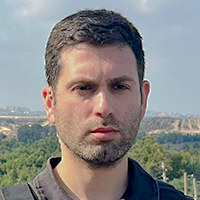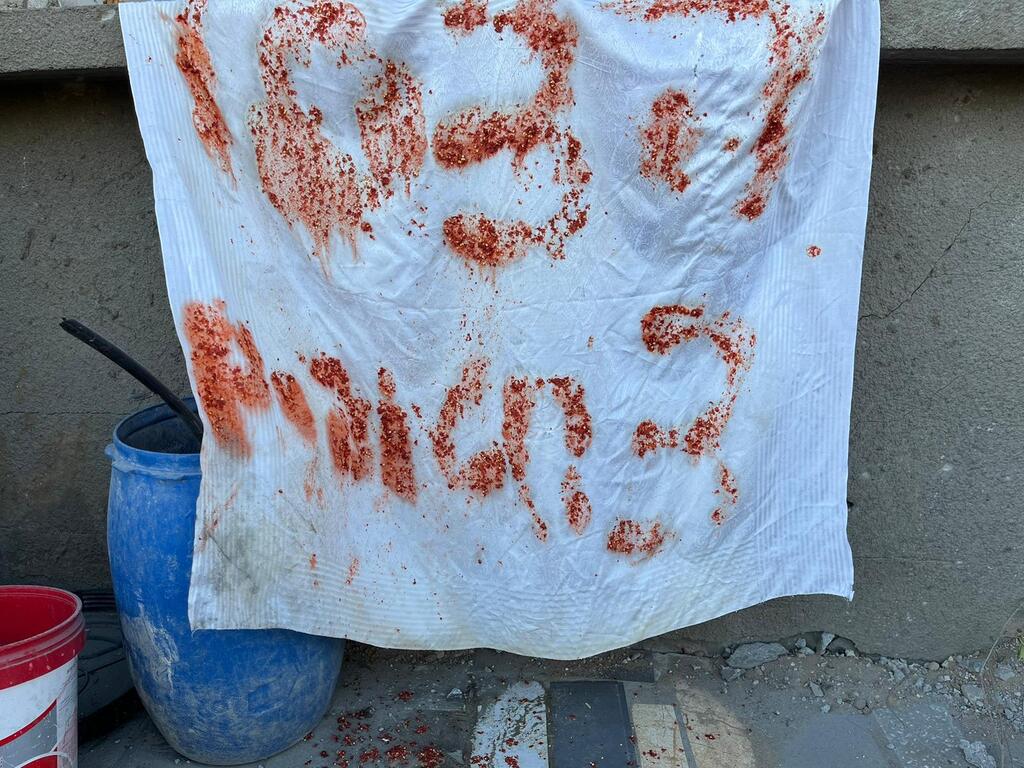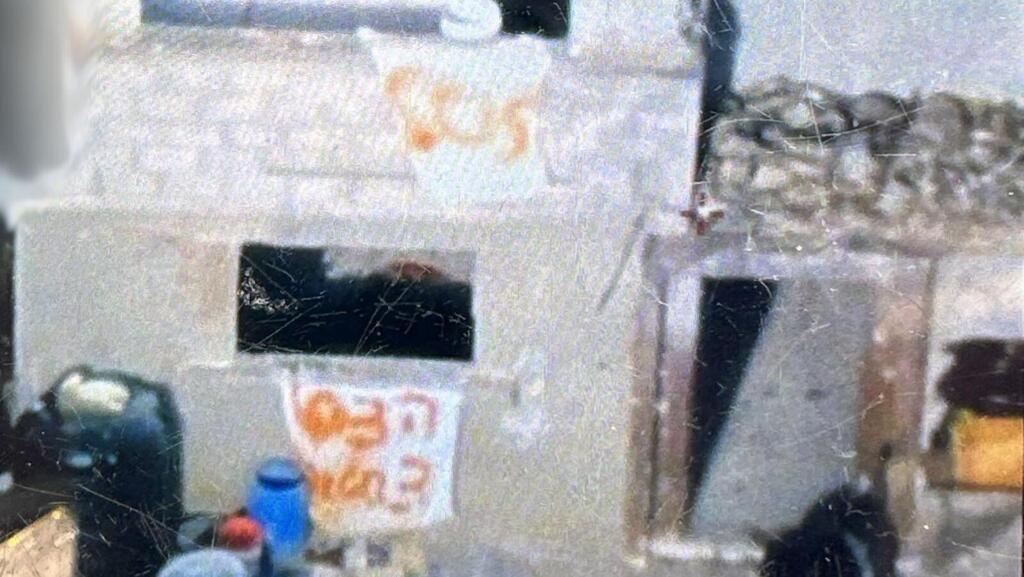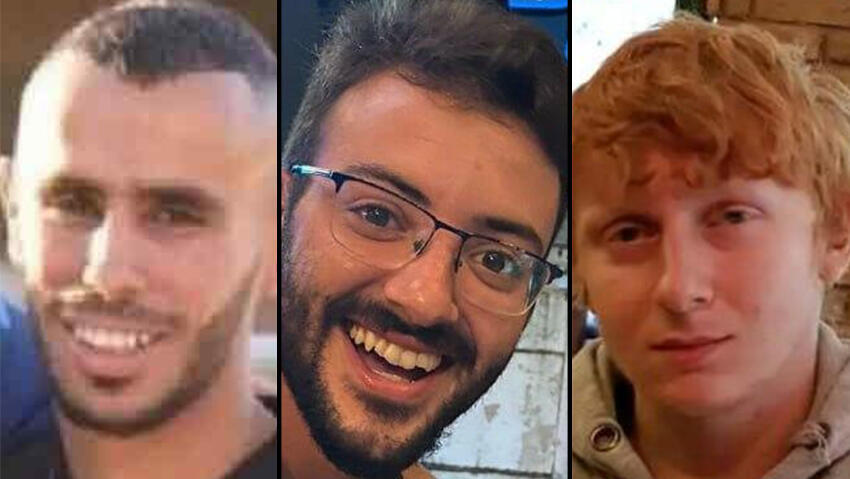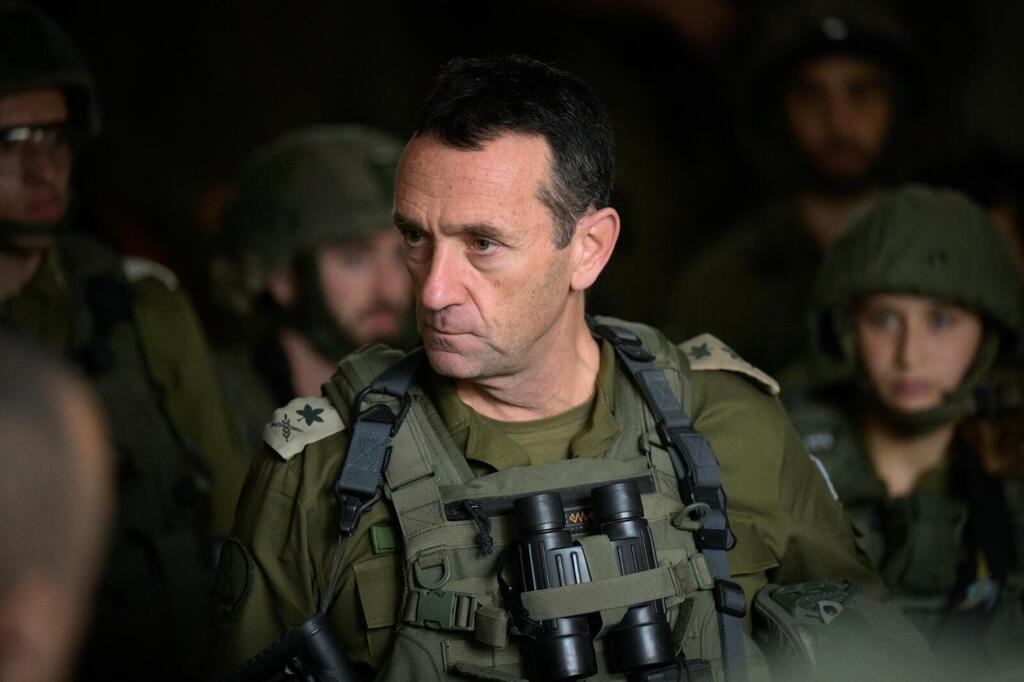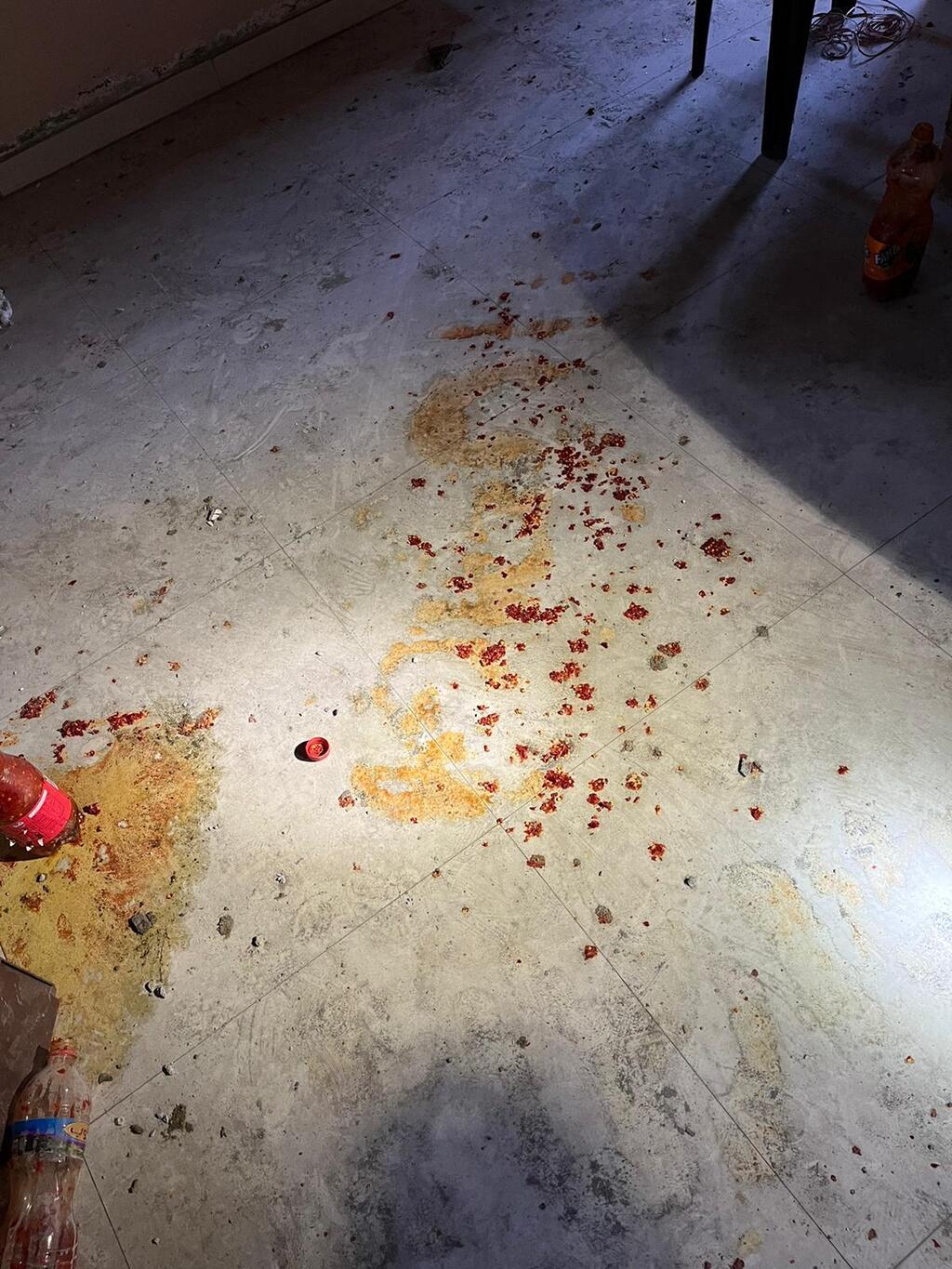The IDF on Sunday evening released photos of a building the three hostages, who were mistakenly killed by friendly fire over the weekend, used as a temporary shelter, showing signs hanging that seemed to be hastily made from food scraps in a desperate attempt to signal for help.
Read more:
"After conducting a thorough search of the premises, it has become clear that the three hostages spent some time in this location where these signs were found. The IDF has informed the families about the current findings," a statement read. The signs bore messages such as "help," "SOS" and "3 abductees."
Speaking to soldiers in Gaza on Sunday, IDF Chief of Staff Lt. Gen. Herzi Halevi addressed the tragic incident, saying, "If Gazans come forward with a white flag to surrender, do we open fire? No, we do not. That's not the conduct of the IDF."
IDF Spokesperson Rear Admiral Daniel Hagari said that the army was examining another building where the hostages are believed to have stayed.
"We continue to investigate the incident and draw our conclusions," Hagari said, highlighting that the chief of staff has relayed this point to the IDF forces following preliminary investigations.
Lt. General Halevi has spoken once more about the tragic event that led to the loss of Yotam Haim, 28, and Alon Shamriz, 26, both from Kibbutz Kfar Aza, and Samer Talalka, 25, from Hura. He expressed to the soldiers, "Let me be clear; this event is extremely harrowing and painful, and that's an undeniable fact." He reflected on the preventable nature of the incident, reminding them of the operation's goals: to dismantle Hamas, to ensure the safety of the residents along the Gaza border and to bring back the hostages.
He elaborated on the incident, saying, "Three individuals made the decision to approach IDF forces, fully aware of the inherent risks. In an attempt to mitigate these risks, they stripped down to show they were unarmed and waved a white cloth on a stick to identify themselves, even shouting in Hebrew, 'help.' I have yet to meet the soldiers involved, but I am confident in their intentions to do the right thing. My purpose here is not to pass judgment but to ensure we improve our actions in the future."
Wrapping up his speech, Halevi reflected, "I'm taken back to the advice I gave my troops as a platoon commander before we entered Gaza during Operation Cast Lead. The final words before combat were - 'use your intellect.' It's a common belief that combat is all about physical prowess, using hands and feet. But I urge you, never cease to engage your mind, even amid battle. The one who can think critically during a fight will outmaneuver the enemy, minimize our own casualties and sharpen their awareness of the surroundings.
"Keep questioning, keep thinking, and hopefully, we'll get another chance to make things right, whether it's welcoming hostages back or entering a home to do the right thing. Keep up the outstanding work; it's a testament to our formidable strength, which will be essential as we move forward. Share this mindset with all your fellow soldiers."
On Saturday, Halevi accepted full responsibility for the regrettable incident. "The IDF and I, as its commander, bear full responsibility for the events, and we're committed to preventing such incidents in future conflicts," he declared on Saturday night.
"The tragic incident where IDF soldiers mistakenly killed Yotam Haim, Alon Shamriz and Samer Talalka is a source of profound grief. The three hostages, who endured an unimaginable ordeal for 70 days, were fatally shot by our own troops. There's nothing more that our soldiers and commanders in Gaza desire than to safely recover hostages. Unfortunately, we fell short in this instance. We deeply share the families' grief over the loss of their loved ones."
The Chief of Staff also sought to shed light on the circumstances leading up to the incident. "I put myself in the shoes of a soldier in Shijaiyah, fatigued from days of intense combat, close-range encounters, and deceptive tactics by terrorists in civilian attire. A soldier must remain vigilant to every threat, as decisions made in the blink of an eye could mean life or death.
"I believe the three hostages did everything in their power to signal their intentions – they removed their shirts to dispel any suspicions of explosives and waved a white fabric to signal their peaceful approach. The firing upon the hostages went against our engagement protocols. Firing upon individuals signaling surrender with a white flag is strictly prohibited. However, this shooting occurred under the duress of combat."
Looking into the tragedy
The investigation into the tragic event revealed that the force that accidentally killed the hostages acted against the IDF's rules of engagement. The investigation was conducted with the forces of Battalion 17, which has been operating in the Gaza neighborhood in recent days.
The investigation, closely overseen by Halevi, revealed that during daytime last Friday, a sniper from the unit inside a building mistakenly identified the three unarmed hostages as terrorists. Despite the good visibility, the error occurred as the hostages, who were shirtless, walked through the streets of the neighborhood, only a few dozen yards from where the soldiers were positioned.
One of the hostages was holding a white flag, yet the sniper still fired precise shots at them. He hit two of them using his scope. A third managed to run to a nearby building. Immediately after the shooting, the sniper shouted "Terrorists."
Inside the building with the force was also the battalion commander, a lieutenant colonel, who halted the firing. He made this decision to lead a charge toward another building, where the third suspect had fled. At that time, this individual was still regarded as a suspected terrorist by the forces.



